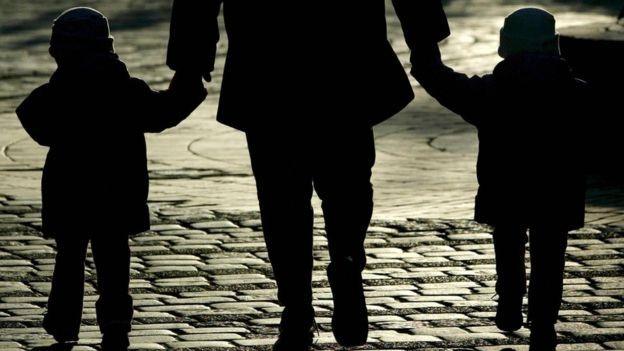What is the child tax credit 'rape clause'?
- Published
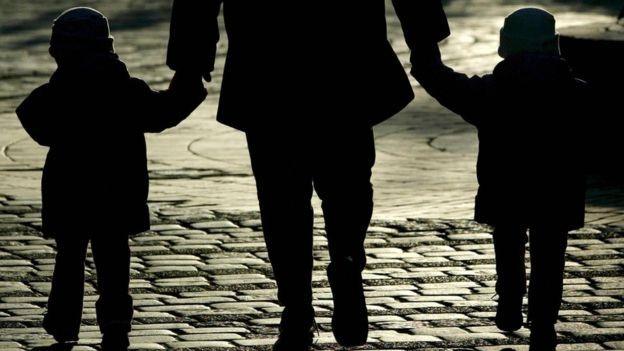
The change means tax credit payments will be limited to the first two children in a family
Changes to tax credits which campaigners have dubbed the "rape clause" became law at the beginning of April.

Why are the changes in the news now?
Campaigners have been fighting the measures since they were announced in the Budget in 2015 but they only came into effect on 6 April.
A number of high-profile opposition politicians have rounded on the UK government over the policy and rallies have been held calling for the clause to be scrapped.

What are child tax credits?
The child tax credit is a benefit to help with the cost of raising a child. Parents and carers might be able to get them if their children are under 16 or, if they are in eligible training, up to the age of 20.
The amount they are given depends on their income, how many children are living with them and their childcare costs.
It can be worth up to £2,780 per year for each child.
Child Tax Credit, external is one of the six benefits that are being phased out and replaced by Universal Credit, external.
The two-child policy will also apply to the new "Child Element" of Universal Credit.

What is the 'rape clause'?
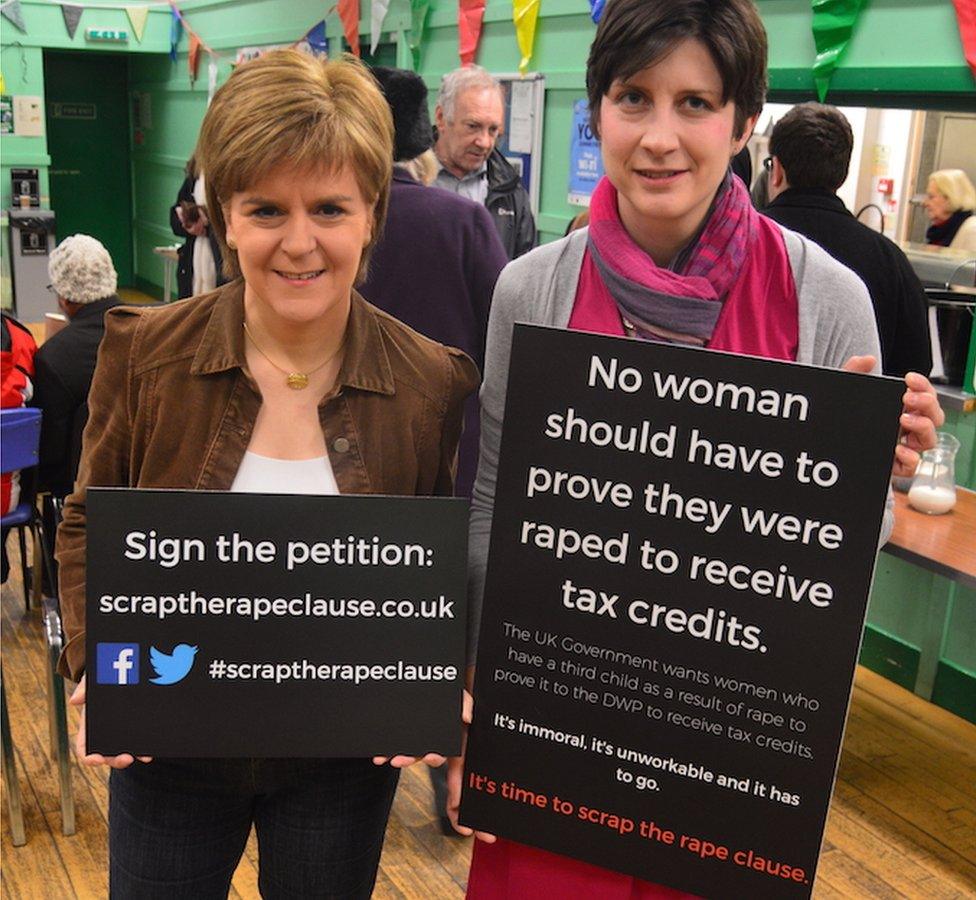
Nicola Sturgeon and Alison Thewliss at a Scrap the Rape Clause event
The move was announced two years ago by the then Chancellor George Osborne.
The UK government said it wanted to limit child tax credit to the first two children because it wanted "people on benefits to make the same choices as those supporting themselves solely through work".
Exemptions to the changes were announced for those;
adopting children
those involved in kinship care
and for multiple births.
There was also an exception for a child born as a result of "non-consensual conception", external. This is the so-called 'rape clause'.
It states that a woman can claim for a third or subsequent child if it was conceived "as a result of a sexual act which you didn't or couldn't consent to" or "at a time when you were in an abusive relationship, under ongoing control or coercion by the other parent of the child".
A woman cannot claim this exemption if she lives with the other parent of the child.
However, it states she can qualify whether or not there has been a court case or conviction of a criminal offence.
The advice from the Department for Work and Pensions (DWP) is that women affected should get support from women's aid, Victim Support or Rape Crisis.
The DWP said it would operate a "third-party model", external so that women did not have to describe the details to a member of its staff.
Instead, women would talk to healthcare professionals, a social worker or an approved rape charity.

What are the objections?
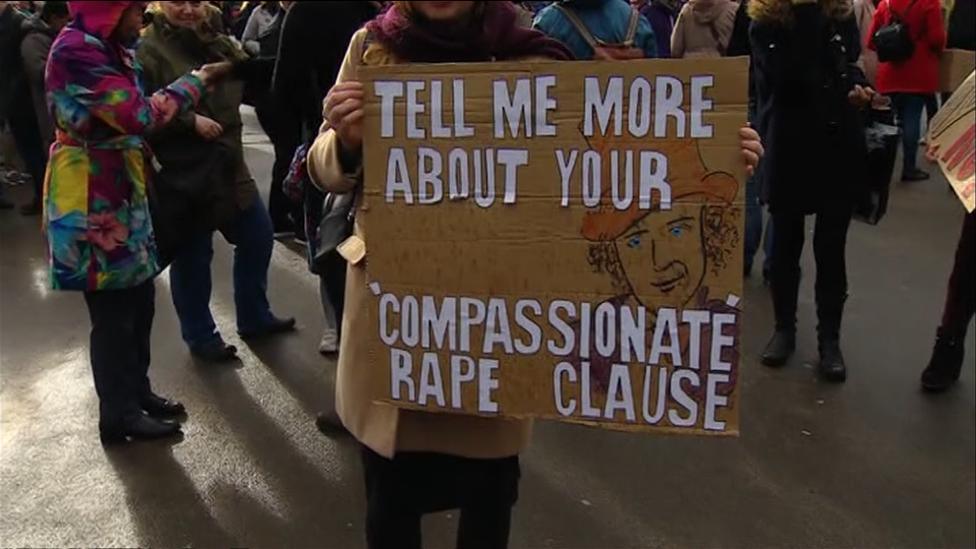
Protesters against the so-called "rape clause" gathered in Glasgow
The UK government has been accused of forcing victims of rape to endure further trauma, making women "prove" they have been raped to receive child benefits.
A campaign group - Scrap The Rape Clause, external - was set up by SNP MP Alison Thewliss and a petition calling on the government to abandon the plans was signed by 10,000 people.
Ms Thewliss wrote: "I believe that women having to prove that they had been raped to DWP employees in order to receive social security payments is morally wrong and would cause needless additional trauma, as well as being completely unworkable in practice."

What does the government say?
The UK Tory government insists its system will ensure women who had a child through rape are not denied tax credits.
That includes allowing an "approved person" to give evidence to HM Revenue and Customs to spare victims the trauma of reliving their ordeal.
Its guidance says: "In developing this requirement, the government has sought to strike a balance between the need to treat such cases with sensitivity and the need to ensure that child tax credit is paid only to persons who are genuinely entitled to it."
A DWP spokeswoman: "We have always been clear this will be delivered in the most effective, compassionate way, with the right exceptions and safeguards in place."
The spokeswoman said that, in cases where victims have accessed support from third parties or charities, the DWP will be notified by these organisations and it will not be investigated.
The spokeswoman was unable to explain how claims would be verified when made by a woman who had never accessed support or told anyone about being raped.
The government added that the policy was debated and voted on in parliament and the exceptions were consulted on widely.

How will the third-party model work?
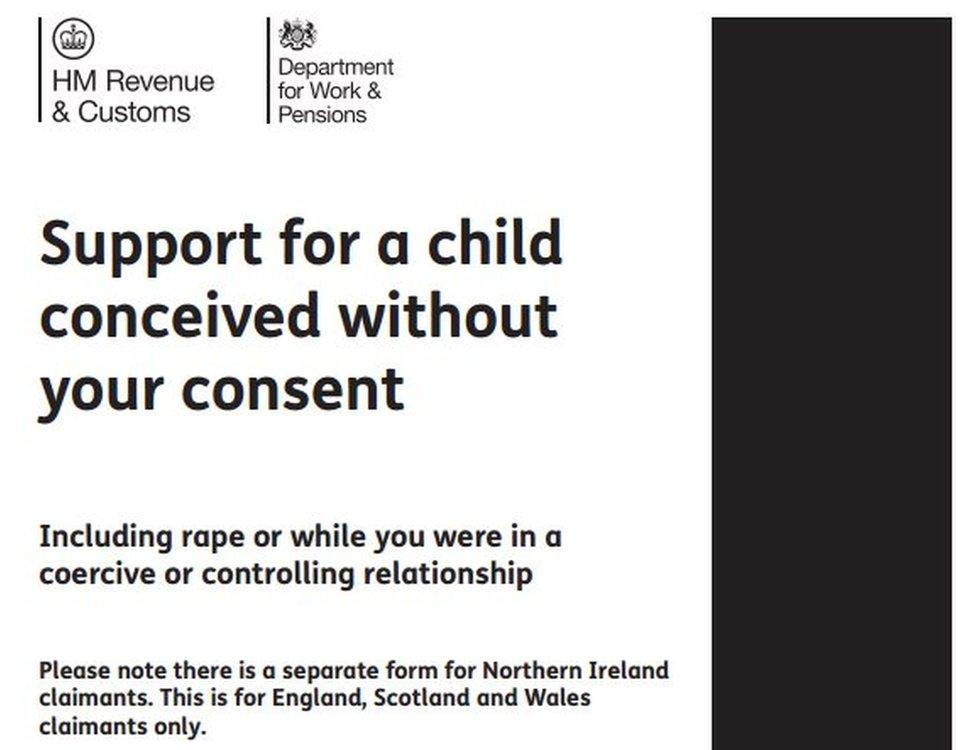
The government requires a form to be filled in by a third-party professional such as a GP
The government requires a form to be filled in which is a declaration by the claimant and by the third-party professional, external that the terms of the exemption have been met.
The HMRC website states: "You'll need to complete the non-consensual conception form with the help of an approved third-party professional", external. It says: "You don't have speak to, or give details about the circumstances of the conception to HMRC staff."
The interpretation of this requirement has caused dispute, with Scottish Tory leader Ruth Davidson hitting out at the "misinformation" about the changes, saying women would not have to fill out a form saying they had been raped.
She said: "They don't have to speak to the DWP, they don't have to declare that they have gone to the police, they don't have to have a medical intervention.
"All they have to do is write their name and someone who is either a healthcare worker or a social worker does everything else for them."
However, Scottish Health Secretary Shona Robison said she had "grave concerns that there was no suitable infrastructure or training to support the implementation of the policy".
Ruth Davidson: "Some of the misinformation put out about this is really deeply damaging, I think it scares people."
She said there was "little advice" on how to conduct the exercise in an appropriate way or provide specialist support to women who have experienced sexual violence.
Ms Robison said: "There should not be an expectation that healthcare professionals act as gatekeepers to the benefits system unless formally contracted."
The Royal College of Nursing Scotland said they "do not believe it is appropriate for a nurse or a midwife to arbitrate if a woman's claim is consistent with rape".
The health secretary said she would not "disseminate" the UK government's guidance to NHS Scotland.

How many people are affected?
The DWP could not say how many people it thought would qualify under the rape clause.

What do other politicians say?
Nicola Sturgeon says the rape clause is 'disgusting'
During her interview at the Women in the World summit in New York, First Minister Nicola Sturgeon said the 'rape clause' was a "disgusting and disgraceful policy".
In her newspaper column, Ms Sturgeon condemned the Scottish Conservatives' "complicity" in the "utterly immoral policies" of the UK government.
Scottish Tory leader Ruth Davidson said she supported the exemptions placed on restrictions to child tax credits and wanted to see them implemented in the "most compassionate" way possible."
Ms Davidson added that Holyrood had the power to create new benefits and could provide funding for families with more than two children if it wanted.
She said: "Of course this would have to be paid for, but if the SNP government believes this to be of such importance, then it can act."
The first minister responded by saying: "Let's be clear, the answer to Tory cuts cannot simply be for the Scottish government to get out the sticking plasters and patch up the Tories' mess - using money intended for public services, while the UK government pocket the savings from their cuts.
"The solution is for the Tories to scrap the rape clause and the two-child policy - not just in Scotland but across the whole of the UK."
Scottish Labour leader Kezia Dugdale wrote a newspaper column, external urging Ms Davidson to confront Prime Minister Theresa May about the "barbaric" changes.
She has also written to Ms Davidson asking her to "join with us and condemn this appalling act", saying the clause "should shame every single Tory MSP".
- Published13 April 2017
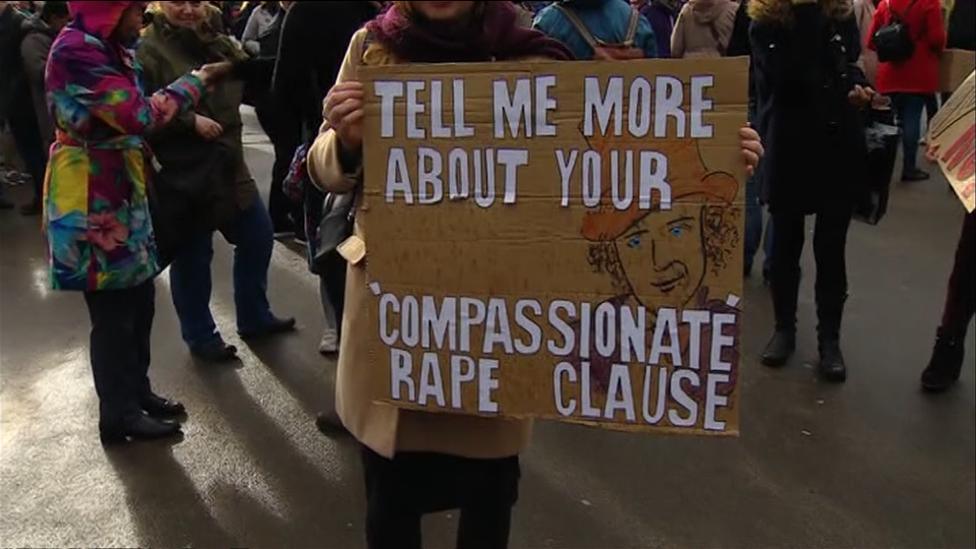
- Published7 April 2017
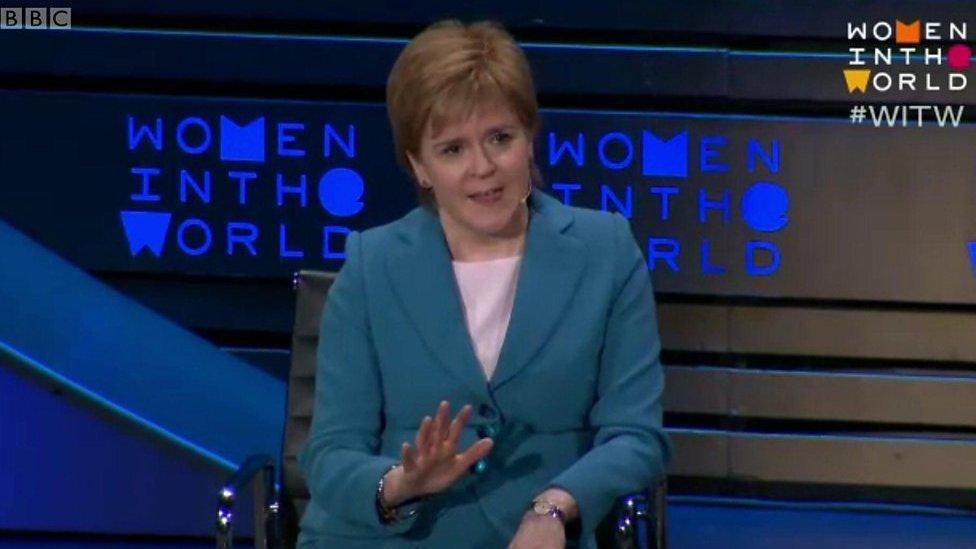
- Published20 March 2017
